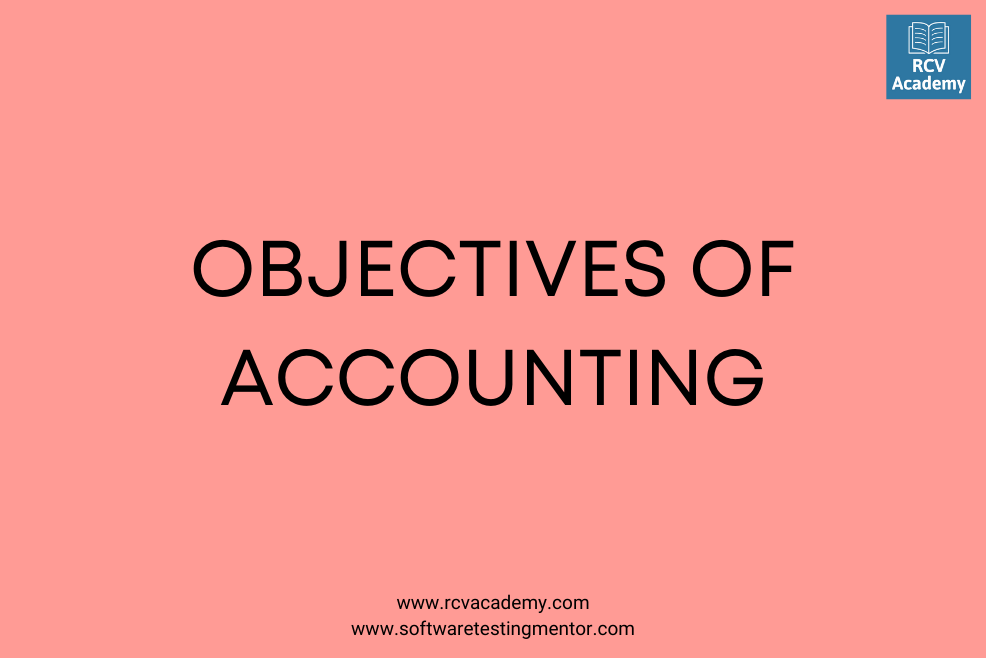In this tutorial, we will learn about the objectives of accounting, maintaining a complete and systematic record of all transactions, and analyzing the financial position of a business.
Every individual or a business concern is interested to know the results of financial transactions, and their results are ascertained through the accounting process.
The objectives can be given as follows:
Systematic recording of transactions:
The fundamental accounting objective is to record transactions, i.e., book-keeping systematically. These transactions are later on classified and summarized logically for the preparation of financial statements.
However, in every business, there are numerous business transactions, and the management can’t keep in mind in all business transactions.
Ascertainment of results of the above-recorded transactions:
The main motive of recording transactions is to ascertain whether the firm is running under profit or loss. The ascertainment of profit earned or loss sustained by the business enterprise, all incomes and expenses are to be worked out and presented in a separate statement called manufacturing, trading and profit, and loss account.
Ascertainment of the financial position:
The business is not only interested in knowing the results but also the financial situation of the firm, i.e., what he owes (Liability) and what he owns (Assets) on a specific date. Its balance sheet depicts an organization’s financial position.
The resources owned by an enterprise (assets) and claims against such resources (liabilities) are shown in the balance sheet.
Providing information to users to make rational decisions:
The accounting communicates the essential details about the organization to the internal users, i.e., the management or the proprietor, and to the external users such as investors, clients, government, and other agencies.
To know the solvency position:
The balance sheet not only depicts the reveals that what is owed or owned by the enterprise but also gives information regarding the concern’s ability to meet its liabilities in the short run known as solvency position.
Functions of Accounting:
Functions of accounting are related to those statements which provide information of economic entity mainly measurable regarding money that uses in deciding for the plan of action from various alternatives. The main functions of accounting are as follows:
Measurement:
Accounting measures the past performance of the entity or firm and depicts its current financial position.
Forecasting:
Accounting helps forecast future performances and the financial position of an enterprise using past data. Budgets and forecasts help the business to deal with potential problems proactively and avoid foreseeable bottlenecks in business resources.
Decision-Making:
It provides relevant information to the users of accounts to aid rational decision making.
It cannot plan without making decisions and has to choose among competing objectives and methods to carry out the goals. Similarly, organizing, managers need to decide on organization structure and on specific actions to be taken on day-to-day operations.
Comparison & Evaluation:
Accounting assesses the performance achieved with targets and discloses information regarding the accounting policies, which play an essential role in predicting, comparing, and evaluating the financial results.
Control:
Accounting checks the weak and vulnerable areas of the operational system and fixes them for better and more productive results.
It helps in the control function by producing performance reports and control reports which highlight variances between expected and actual performances.
Government Regulation & Taxation:
Accounting provides the government with the necessary information on the collection of revenues and controlling the business.
